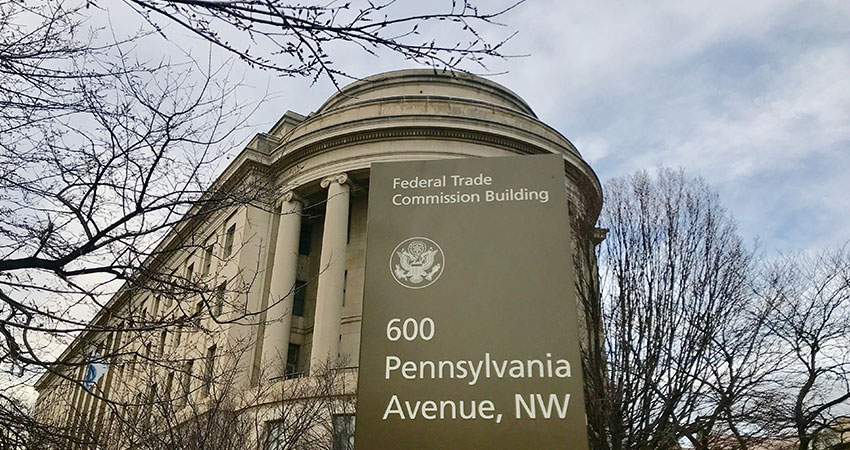The Federal Trade Commission and 17 state attorneys general filed a long-expected antitrust lawsuit against Amazon Tuesday, with the FTC accusing the company of monopolistic behavior on a broad scale and suggesting to the court a breakup of the 29-year-old ecommerce juggernaut as one form of injunctive relief.
Still, the FTC action is narrower in scope than some had been expecting, focused on Amazon’s dominant marketplace and third-party sellers, and the quality of search results and paid ads on the consumer side.
“At best, the FTC could hope for some modest changes to Amazon’s pricing policies, fewer requirements around Prime shipping, and presumably improved search results,” said Baird analyst Colin Sebastian, who in a July research note suggested an Amazon breakup would be an overreach. “Underlying these charges, however, we note what appears to be an FTC shift from protecting consumers to protecting businesses.”
Among the many charges in the 172-page complaint – much of it redacted – is an accusation that Amazon uses its dominant market power to coerce sellers to use its Fulfillment By Amazon (FBA) service, and conditioned Prime eligibility on using FBA. That same power, the lawsuit alleges, has allowed Amazon to block competition, inflate prices and degrade product quality.
Antitrust actions, or the threat of them, against big tech are certainly nothing new. In 2021, President Biden issued a sweeping executive order covering 72 actions in a move to limit their power, including in mergers and acquisitions. The companies are presumed to be Amazon, Facebook/Meta, Apple and Alphabet/Google.
In an undercard to Tuesday’s main event, the FTC in June accused Amazon of duping consumers into joining Prime, then making it hard for them to leave, sort of like a controlling boyfriend. The company of course denied the charge.
The two main areas where Amazon operates as a monopoly, the FTC alleges in the new action, are in the “online superstore” and “online marketplace” domains, with a “feedback loop” between the two increasing the network effect. This includes biasing search results to skew toward Amazon’s own products, the FTC claims, and away from those it knows are of superior quality.
In one section claiming that Amazon takes about half of every dollar that sellers earn to cover FBA fees, the FTC complaint quotes an anonymous seller lamenting, “We have nowhere else to go, and Amazon knows it.”
Countering this narrative in a preemptive move, Amazon on Monday put out a long blog post detailing the history and benefits of FBA, detailing how it has spurred innovation and seller success. Also ahead of the FTC action, Amazon last week dropped a controversial 2% per-item fee for merchants using its Seller-Fulfilled Prime (SFP) program, which was to start in October. At that point, it was a case of too little, too late, taking away one club from a veritable rack of FTC weapons.
“Our complaint lays out how Amazon has used a set of punitive and coercive tactics to unlawfully maintain its monopolies,” said FTC Chair Lina M. Khan in a statement. “The complaint sets forth detailed allegations noting how Amazon is now exploiting its monopoly power to enrich itself while raising prices and degrading service for the tens of millions of American families who shop on its platform and the hundreds of thousands of businesses that rely on Amazon to reach them.”
The action, Khan said, “seeks to hold Amazon to account for these monopolistic practices and restore the lost promise of free and fair competition.”
David Zapolsky, Amazon’s SVP of Global Public Policy and General Counsel, responded that the FTC has “radically departed from its mission of protecting consumers and competition,” and that the action is “wrong on the facts and the law.”
“The practices the FTC is challenging have helped to spur competition and innovation across the retail industry, and have produced greater selection, lower prices, and faster delivery speeds for Amazon customers and greater opportunity for the many businesses that sell in Amazon’s store,” Zapolsky said. “If the FTC gets its way, the result would be fewer products to choose from, higher prices, slower deliveries for consumers, and reduced options for small businesses — the opposite of what antitrust law is designed to do.”
In a longer statement, Zapolsky said the lawsuit reveals the FTC’s “fundamental misunderstanding of retail.”

